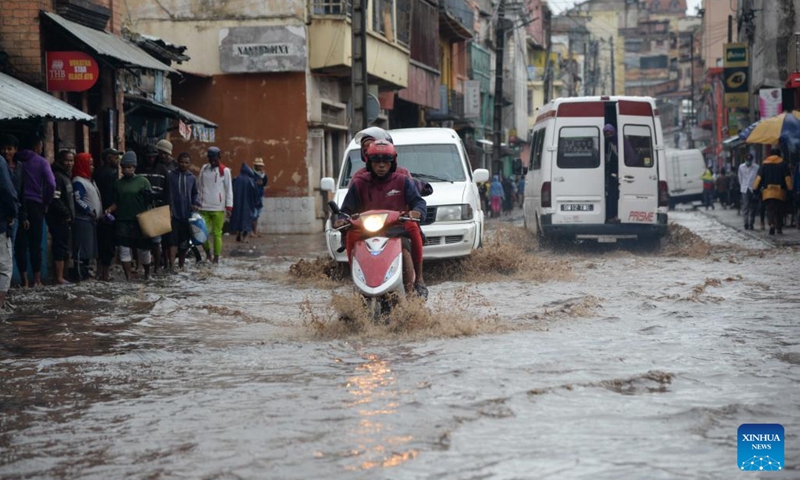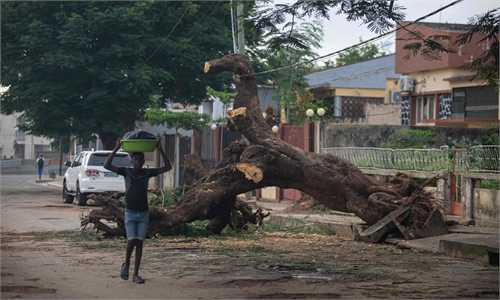
A man rides a motorcycle through a flooded road in Antananarivo, Madagascar, on Feb. 6, 2022. A total of 20 deaths were recorded Monday in Madagascar by the Office of Risk and Disaster Management, following the passage of intense tropical cyclone Batsirai Saturday and Sunday.(Photo: Xinhua)
A string of deadly storms pummeled Madagascar, Malawi and Mozambique with more intense rainfall because of climate change, new research found Monday.Three tropical cyclones and two tropical storms hit Southeast Africa in just six weeks in the first months of 2022, causing widespread flooding.
More than a million people were affected and at least 230 people died.
The analysis was carried out by the World Weather Attribution (WWA) network of scientists, which has pioneered ways to speedily link extreme weather events to climate change.
They said that it was climate change that had made the heavy rains brought by the back-to-back storms both heavier and more likely.
"Again we are seeing how the people with the least responsibility for climate change are bearing the brunt of the impacts," said WWA co-founder Friederike Otto, of the Grantham Institute at Imperial College London.
After Tropical Storm Ana smashed into the region in January, Tropical Cyclone Batsirai hit Madagascar in early February, followed in quick succession by Tropical Storm Dumako and Tropical Cyclones Emnati and Gombe.
WWA scientists used weather observations and computer simulations to compare rainfall patterns under today's climate to that of the pre-industrial area, before global warming.
They focused on two of the wettest periods - during storm Ana in Malawi and Mozambique and during cyclone Batsirai in Madagascar.
That tallies with overall climate research showing that global warming can increase the frequency and intensity of rainfall.
AFP



